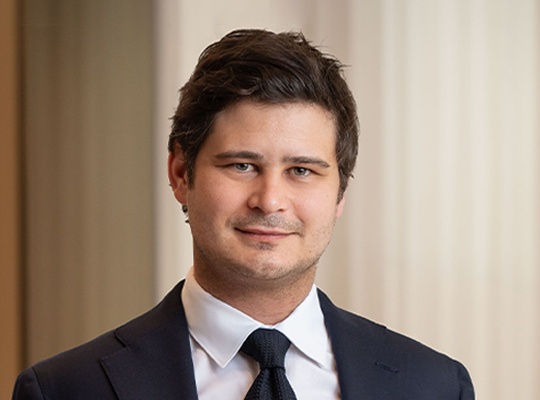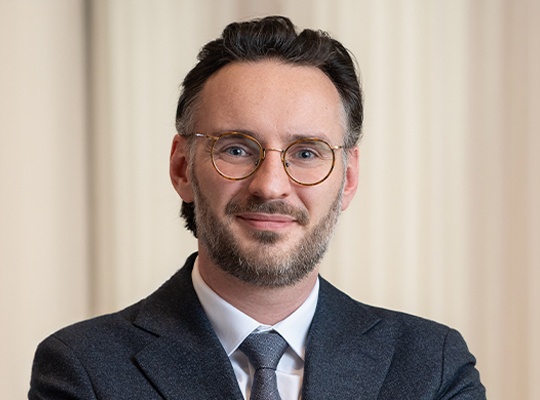French Taxation of Carried Interest: A New Opportunity for Foreign Fund Managers
A parliamentary amendment, introduced in Finance Bill 2019 and adopted on December 28, 2018 (Holroyd Amendment), completes the favorable tax framework offered to foreign fund managers considering relocation to France, by allowing them to benefit from a 30% tax rate on the carried interest they hold in foreign funds.
Key Aspects and Consequences
- Under current French law, carried interest received by French tax resident managers that does not meet the conditions set out by the Arthuis Regime (as defined below) is treated as employment income and taxable at a rate of up to c. 75%. However, if the conditions set out by the Arthuis Regime are met, any sums derived from the carried interest are treated as capital gains or distributions and taxable at a rate of c. 30%.
- Experience shows that carried interest shares, units or rights (Carried Interest) in foreign investment funds are rarely structured to meet the conditions set out by the Arthuis Regime.
- The Holroyd Amendment allows managers of foreign funds willing to relocate to France to benefit from a 30% flat tax rate on sums deriving from Carried Interest, even if the conditions of the Arthuis Regime are not met.
- This measure is part of a series of tax incentives introduced by the French government to facilitate the potential relocation of foreign management teams to France, especially in the context of Brexit.
Background
The general principle is that as the right to Carried Interest is usually closely related to the employment contract or directorship of a manager within a management company (or in an advisory company related thereto), Carried Interest received by French management teams should be taxed as employment income at a rate of up to c. 75%.1
However, in 2009 France introduced more favorable tax legislation for all sums derived from qualifying Carried Interest held in French or European private equity funds2 (Arthuis Regime). Hence, if the conditions set out below are met, all sums derived from Carried Interest are treated as capital gains or distributions, and taxed at the rate of 30%,3 instead of being taxable as employment income.
In practice, therefore, the rights to Carried Interest of French investment teams are usually structured to allow the meeting of the following cumulative conditions:
- Carried Interest is subscribed or acquired for a price corresponding to the fair market value of the shares or units representing the Carried Interest;
- Carried Interest forms a single category of shares or units;
- The amount of subscriptions received in relation to Carried Interest must represent at least 1% of the total amount of subscriptions received by the investment fund (1% Condition);
- Carried Interest must represent a long-term investment – in principle, no distribution can be made to French Carried Interest holders before the end of a five-year period from the set-up of the investment fund (or, in certain cases, before the end of a five-year period from the date of issuance of the Carried Interest); and
- The French tax resident managers must receive a “market practice” remuneration with respect to their employment or director functions.
In practice, meeting the above-mentioned conditions is not straightforward in the case of foreign management companies or foreign funds. Indeed, in an international context, management teams are often multi-jurisdictional and the specific constraints of the Arthuis Regime are generally not taken into consideration, even if there are some French tax resident managers.
The Holroyd Amendment offers a unique opportunity for foreign managers willing to relocate to France to benefit from a 30% flat tax rate on sums derived from Carried Interest they already hold in foreign funds, despite the fact that the Carried Interest does not fulfill the conditions of the Arthuis Regime.
However, it is important to note that this amendment does not cover the tax situation of the current French tax resident managers holding Carried Interest in foreign funds, who are still left in a relatively unfavorable tax position.
The Holroyd Amendment
Further to the Brexit vote on June 23, 2016, the French government redoubled efforts to attract financial institutions and global investors to France and increase the attractiveness of the Paris financial market.4 The Holroyd Amendment follows this trend and is in line with the public statement made by the French Prime Minister to “simplify the 'impatriation' regime for investment funds relocating to Paris”.5
As adopted by the French Parliament, the Holroyd Amendment should allow foreign managers who transfer their tax residency to France between July 11, 2018 and December 31, 2022 – and who were not French tax residents during the three calendar years preceding the transfer – to benefit, under certain conditions, from the 30% flat tax rate on the Carried Interest held in certain eligible foreign investment entities (described below).6
These conditions are far less stringent than the ones provided for by the Arthuis Regime. Indeed, the new favorable tax treatment would apply if the following cumulative conditions are met:
- Carried Interest is held directly, or indirectly through an intermediate entity, in foreign investment entities that qualify as private equity entities, and that are established out of France (i) in a member state of the European Economic Area (EEA), or (ii) in a state or territory that entered into an Administrative Assistance Agreement against tax evasion and fraud with France (a Tax AAA);
- Carried Interest has been subscribed, granted or acquired when the manager was not a French tax resident.7 However, Carried Interest subscribed, granted or acquired entirely for free is not eligible for the Holroyd Amendment; and
- Managers shall be employees, providers of services,8 partners or directors (i) of the foreign private equity fund, or (ii) of any other company providing services related to the management of the foreign fund, provided that the remuneration received by the managers with respect to these functions is considered as “market practice.”
Practical Implications
In light of Brexit, the wider geographical scope of the Holroyd Amendment specifically aims to apply to Carried Interest held in UK private equity funds,9 albeit without being limited to them. Indeed, this amendment is also applicable to Carried Interest held, for example, in U.S. or in Cayman private equity funds, whereas such funds are excluded from the scope of the current Arthuis Regime.
Furthermore, the Holroyd Amendment addresses many of the pitfalls that may be encountered by new French tax residents trying to benefit from the 30% tax rate on Carried Interest held in foreign funds, such as the 1% Condition and the condition requiring that Carried Interest shall form a single category of shares or units.
The Holroyd Amendment does not address, however, inter alia:
- The requirement that an investment be made by the managers to benefit from the 30% tax rate – indeed, it is not unusual in foreign funds for Carried Interest to be granted for free; and
- The scenario under which the investment was required to be made indirectly. Indeed, it is common for the sponsor of a foreign fund to require managers to subscribe to their Carried Interest indirectly via a “Carry Partnership” or a “Carry Company.” In this case, due to the strict interpretation made by the French tax authorities of what is considered to be an eligible “intermediate entity,” the favorable regime may still not apply.
In any case, the Holroyd Amendment should offer a very attractive tax treatment to the foreign managers of foreign funds that contemplate relocation to France, especially if they also benefit from the “impatriation” regime. Indeed, the latter should in principle allow them, inter alia, to benefit from a 50% income tax exemption on capital gains and income derived from their co-investments (i.e., pari passu with limited partners) in foreign funds.10
However, it is unfortunate that the Holroyd Amendment does not apply to Carried Interest held in French funds by managers relocating to France. Incidentally, it is worth noting that the existing French tax resident managers holding Carried Interest in foreign funds are effectively in a less favorable tax position than the one of the foreign managers relocating to France.
Finally, and more generally, the market would welcome a step forward in relation to other types of Carried Interest holders, such as debt fund managers, whether or not already located in France.
Footnotes
1) This c. 75% tax rate includes the progressive personal income tax rate (up to 45%) and a 30% specific social security contribution applicable to Carried Interest treated as employment income. As the case may be, the c. 75% tax rate may be increased up to c. 79% if the taxpayer is subject to exceptional contribution on high revenues.
2) These are funds whose main purpose is to invest in equity or in securities giving access to share capital (e.g., convertible bonds) of companies whose stock is not admitted to trading on a regulated market. 3) This 30% tax rate is applicable as from January 1, 2018, and includes personal income tax (12.8%) and social security contributions (17.2%). As the case may be, this 30% tax rate may be increased up to c. 34% if the taxpayer is subject to the exceptional contribution on high revenues.
4) These efforts included: extension of the period during which the “impatriation” regime may be claimed from five to eight years; exemption of payroll tax (taxe sur les salaires) for employees benefitting from the “impatriation” regime; and progressive reduction of corporate income from 33.33% to 25% by 2022.
5) Speech of M. Édouard Philippe, French Prime Minister, at the Paris Europlace dinner, July 11, 2018.
6) As an anti-optimization measure, any sums derived from Carried Interest benefiting from the Holroyd Amendment cannot additionally benefit from the 50% exemption provided by the French “impatriation” regime (Art. 155 B of the French tax code) applicable to passive income.
7) It seems this should also apply to Carried Interest that has been subscribed or acquired in accordance with the terms and conditions stated by a memorandum of understanding or by-laws of the foreign private equity fund, prior to the date on which the manager transferred its tax residency in France.
8) As currently drafted, it seems that the benefit of the regime is not restricted to individuals rendering services in relation to the management of the fund. However, the French tax authorities may provide for such a limitation in their future guidelines.
9) Indeed, even in the case where further to the discussions between London and Brussels, the UK would no longer be a member state of the EEA, the Holroyd Amendment should still apply as France and the UK have already entered into a Tax AAA.
10) This is subject to the meeting of the specific conditions provided for by the “impatriation” regime (Article 155 B of the French tax code).




